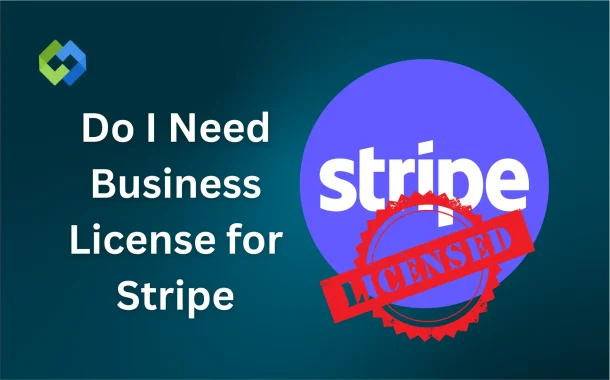Different countries and states have different rules for business licenses. Some may require a license even for small or online businesses, while others may not. Understanding these rules helps you plan better. It also builds trust with customers and payment processors. When you follow the legal requirements, you reduce risks and focus on growing your business without interruptions. This knowledge saves time, money, and stress in the long run.
Table of Contents
Table of Contents
What Is a Business License
A business license is an official permission from the government that allows you to legally operate a business. It shows that your business meets local, state, or national regulations. Without a license, running a business can be considered illegal and may lead to fines or other penalties.
Business licenses vary depending on the type of business and location. Some businesses need special permits, while others only need a general license. It helps authorities track businesses, ensure safety standards, and collect taxes. Having a license also builds trust with customers and payment providers like Stripe. It proves that your Business Registration is legitimate and follows the law, making it easier to operate and grow safely.
Do You Need a Business License to Use Stripe
Whether you need a business license to use Stripe depends on your location and how you operate your business. Stripe itself does not require every user to have a formal license. Many individuals, freelancers, and sole proprietors can use Stripe without one. This makes it easy to start accepting payments quickly.
However, some regions have laws that require a business license to operate legally. This includes certain states, cities, or countries. If your area requires a license, you must have one to avoid fines or legal trouble. Using Stripe without meeting these rules could lead to account issues or penalties.
Having a business license can also make the Stripe setup process smoother. It shows that your business is legitimate and compliant with local regulations. This can help prevent delays in account verification and increase trust with payment processors.
Business License Requirements by Country
United States
Most states require a business license for formal businesses, including LLCs and corporations. Sole proprietors or freelancers may not need a license in some areas, but it depends on local city or county rules. Certain industries, like food services, health services, or financial services, always require specific permits. Checking both state and local requirements is important to avoid fines or legal trouble.
United Kingdom
In the UK, businesses must generally register with HM Revenue & Customs (HMRC) for tax purposes. Depending on the type of business, additional licenses may be needed. For example, selling alcohol, operating a travel agency, or providing financial services requires special permits. Understanding these requirements helps ensure your business is fully compliant and avoids penalties.
Other Countries
Business license rules vary widely across countries. Some nations require licenses for all businesses, while others only enforce them in certain industries. It’s crucial to research local laws before using Stripe to make sure your business is legally allowed to operate. Following these rules helps maintain account security and prevents legal issues.
Consequences of Operating Without a License
Legal Penalties
Operating without a business license can lead to serious legal consequences. Authorities may impose fines or penalties, and in some cases, order you to stop your business completely. Repeated violations can escalate to lawsuits or even criminal charges. Understanding local laws helps avoid these risks and keeps your business safe.
Impact on Stripe Account
Using Stripe without meeting license requirements can directly affect your account. Stripe may limit certain features, suspend payment processing, or close your account entirely. This can disrupt your cash flow, delay customer payments, and harm your overall business operations. Being compliant prevents these interruptions.
Reputation and Trust Issues
A business operating without a license may lose credibility with customers and partners. People are less likely to trust an unlicensed business, which can impact sales, partnerships, and long-term growth. Having a valid license shows professionalism and reliability.
Business Protection
A proper business license provides legal protection for your operations. It ensures compliance with local, state, and national regulations, helping avoid unnecessary risks. Combine that protection with a strong online presence, use tools such as a Social Media Post Generator to market your licensed business effectively.
Being licensed allows you to operate confidently and focus on growing your business without fear of penalties.
Alternatives if You Don’t Have a Business License
Operate as an Individual or Sole Proprietor
In many regions, Stripe allows individuals to create accounts without a formal business license. This option works well for freelancers, hobby sellers, or small-scale operations. You can start accepting payments quickly while remaining compliant in areas that do not require a license for individuals.
Use Other Payment Processors
Some payment platforms have simpler licensing requirements than Stripe. Services like PayPal, Square, or local payment gateways may allow you to accept payments legally without holding a business license. These platforms can be a good starting point while you plan for future business registration.
Partner with a Licensed Business
Collaborating with a registered business allows you to process payments legally under their license. This is useful if you want to operate without obtaining your own license immediately. It also helps maintain credibility with customers and payment processors.
Check Local Laws
Even with alternatives, some countries or states may still require registration or permits for certain activities. Understanding your local regulations ensures you avoid fines, account holds, or legal trouble while running your business.
How to Obtain a Business License
Obtaining a business license is an important step to operate legally. The process usually starts by identifying the type of license your business needs. Different industries and locations may require different licenses or permits. Knowing exactly what is required helps avoid delays or mistakes.
Next, you need to apply through the appropriate government agency. In most countries, this could be a local city office, county office, or national authority. The application may ask for details about your business, such as its name, address, type, and owners.
There are usually fees involved in getting a business license. The cost depends on your location and the type of license you need. Some licenses need renewal after a certain period, so keeping track of expiration dates is important.
After approval, you receive your license and can operate your business legally. Having a license protects your business, builds trust with customers, and ensures smooth operations with payment processors like Stripe.
Conclusion
Using Stripe does not always require a business license, but it depends on your location and business type. Individuals and freelancers can often use Stripe without one, while some regions and industries do require proper licensing. Knowing the rules in your area helps you avoid fines, account issues, or legal trouble.
Having a business license adds credibility and protects your business legally. If you don’t have one, alternatives like operating as an individual, using other payment processors, or partnering with a licensed business can work. Following local laws ensures your Stripe account runs smoothly and your business stays safe.














